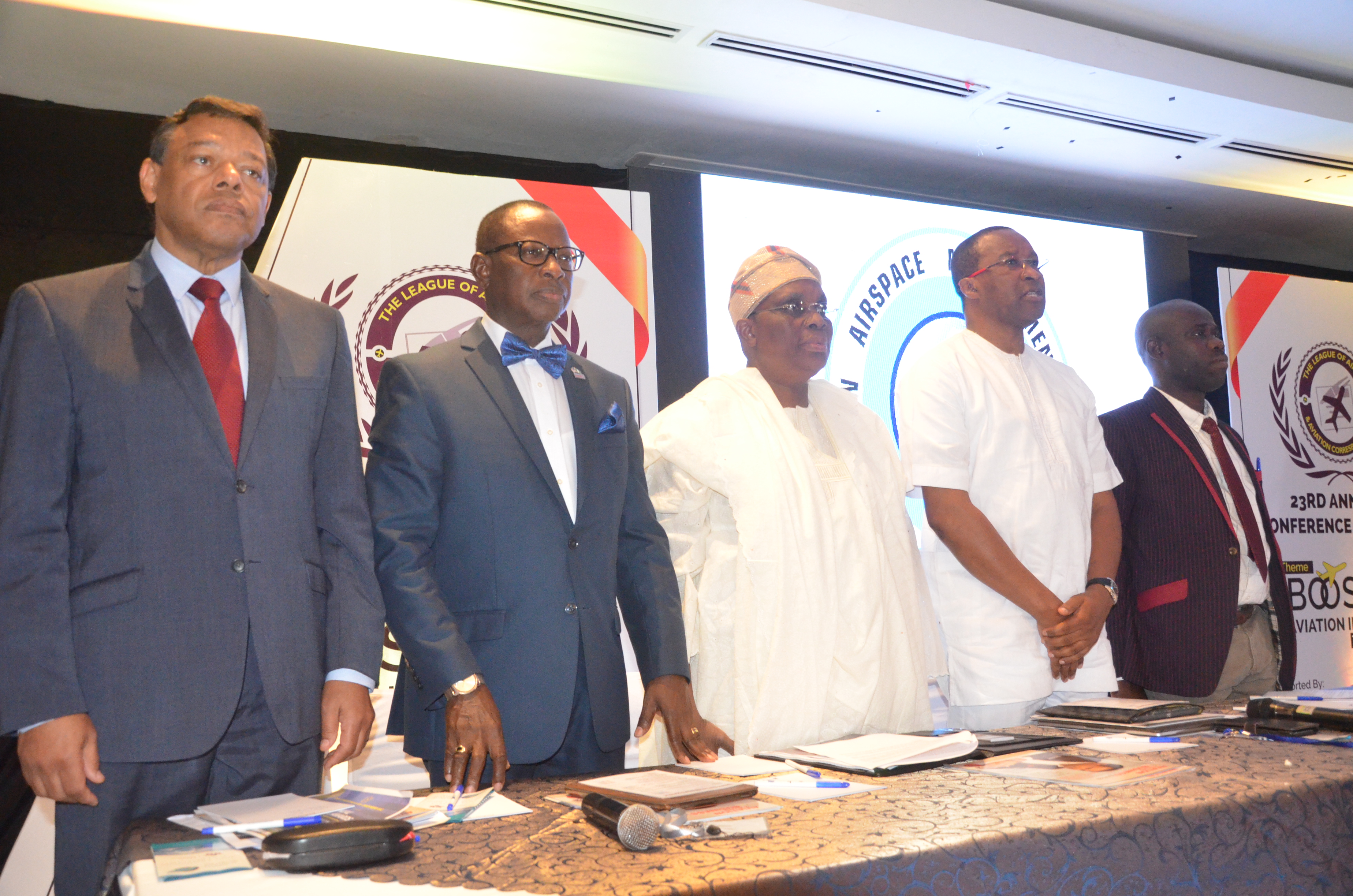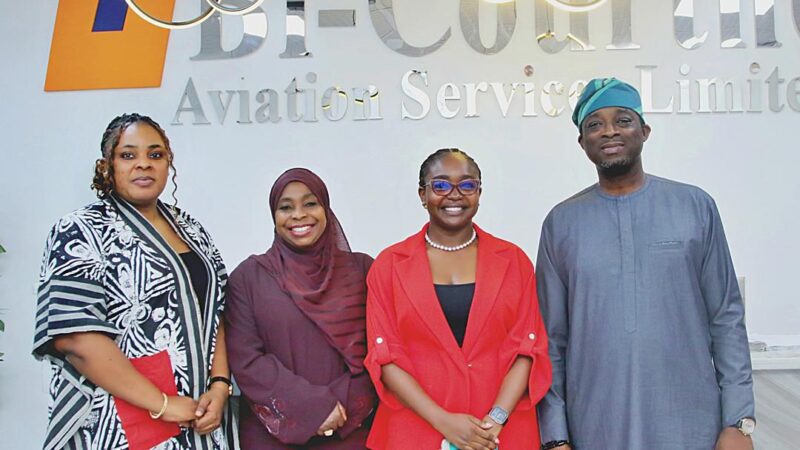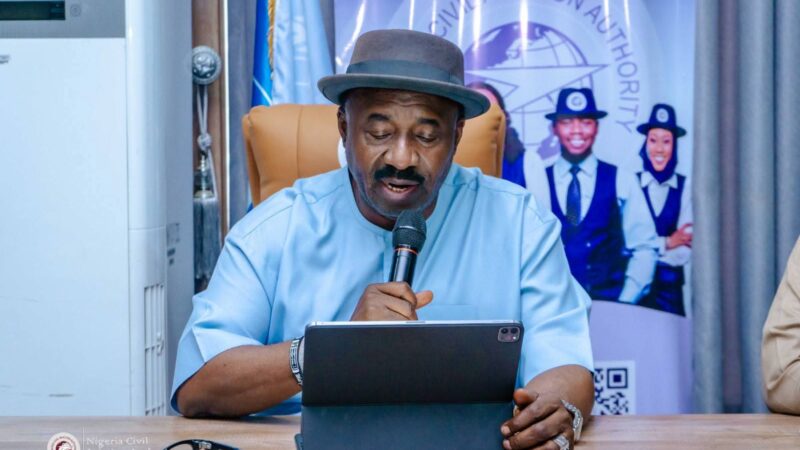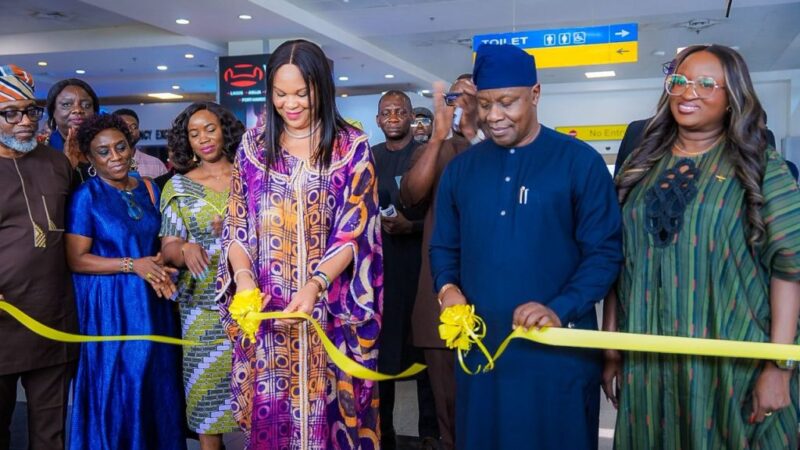Stakeholders task FG on grueling issues bedeviling indigenous airlines


Nigeria’s indigenous carriers are currently struggling to break even in their operations, especially as they compete against their foreign counterparts on local and international routes.
Stakeholders have identified grueling policy issues, obsolete infrastructure, poor corporate governance, and non-viable business ideas, among other challenges hampering the growth of indigenous airlines.
Speaking at the 23rd Conference of the League of Airport and Aviation Correspondents (LAAC) held in Lagos, Chairman of the league, Olusegun Koiki, said in the early period of those glorious years of Nigeria Airways, the citizens were proud of its well-trained and seasoned professionals handling their roles with dignity in the development of trade and businesses through air transportation.
According to him, since the liquidation of the nation’s flag carrier, Nigeria Airways, policy inconsistency, on the part of the government, has been a major challenge to private-owned airlines in the country.
Highlighting some of the challenges faced by the airlines, Koiki said, “The gestation period of domestic carriers in business to their extinction, which is within the average of 5-10 years, is worrisome as the identifiable causes include scarcity and high cost of aviation fuel; poor facility at our airports, obsolete infrastructure; multiple taxations; shortage of forex for airline operators; multiple designations for the foreign carriers and absence of Maintenance Repair and Overhaul (MRO) facility.”
But for the purpose of industry’s stability, improved safety and increased profitability of the indigenous airlines, the LAAC chairman said it was imminently instructive that the Federal Ministry of Transportation, through the minister of states for Aviation, the Nigerian Civil Aviation Authority with other relevant agencies, reflects on the National Aviation Policy in conjunction with various aviation stakeholders holistically.
Corroborating this view, the Chief Executive Officer of Med-View Airlines, Alhaji Muneer Bankole, who was the Chairman of the occasion, said since the liquidation of the nation’s flag carrier, Nigeria Airways, the backbone of the aviation industry got broken.
According to him, granting of multiple designations and frequencies to foreign airlines flying the nation’s local routes has been one of the snags making it impossible for the indigenous (private) carriers to scale-up their operations and break-even in business.
He explained that it was unthinkable for any country to accord such undue benefits to a foreign airline, adding that while the government has allowed the foreign airlines to frustrate indigenous carriers and relegate them to the background by feasting on both local and international routes, no Nigerian carrier has ever enjoyed such benefits in another country.
For a quick fix, Bankole charged the Federal Government to put in place appropriate policy roadmap that will favour local operators over their foreign counterparts.
He emphasized that such policy should regulate undue rights to multiple entry points granted to foreign airlines, checkmate double taxation, address infrastructural deficiencies and set benchmarks for cost of aviation fuel.
Presenting his paper on the theme of the conference: ‘Boosting Aviation Investment through Policy – the Government Perspective,’ the former Director-General of the Nigerian Civil Aviation Authority, Dr. Harold Demuren, who was represented by the President of Aviation Safety Round Table Initiative, Dr. Gabriel Olowo, said investment opportunities abound in the nation’s aviation industry but, until there are effective regulations, the industry may remain fallow.
He said the government must look inwards to formulate policies that have operational excellence, stakeholders’ satisfaction, stable legal framework, safety, and security assurance, among others concerns, in order to drive investment in the industry.
He noted that a situation where Ethiopian Airlines has many entry points in the country and is also flying local routes while Nigerian airlines cannot reciprocate same in Ethiopia shows there are no effective regulations and the agreed terms in the Bilateral Air Service Agreement were weak and not signed in favour of the indigenous carriers.
These views were also corroborated by other stakeholders at the event, indicating their resolve for a vibrant aviation industry that will allow enough space for the indigenous airlines to flourish in a conducive environment.
Hence, there was a clarion call for a review of BASA policies which Nigeria has signed with other countries, as a deliberate move to create enabling conditions for the local carriers to thrive.







